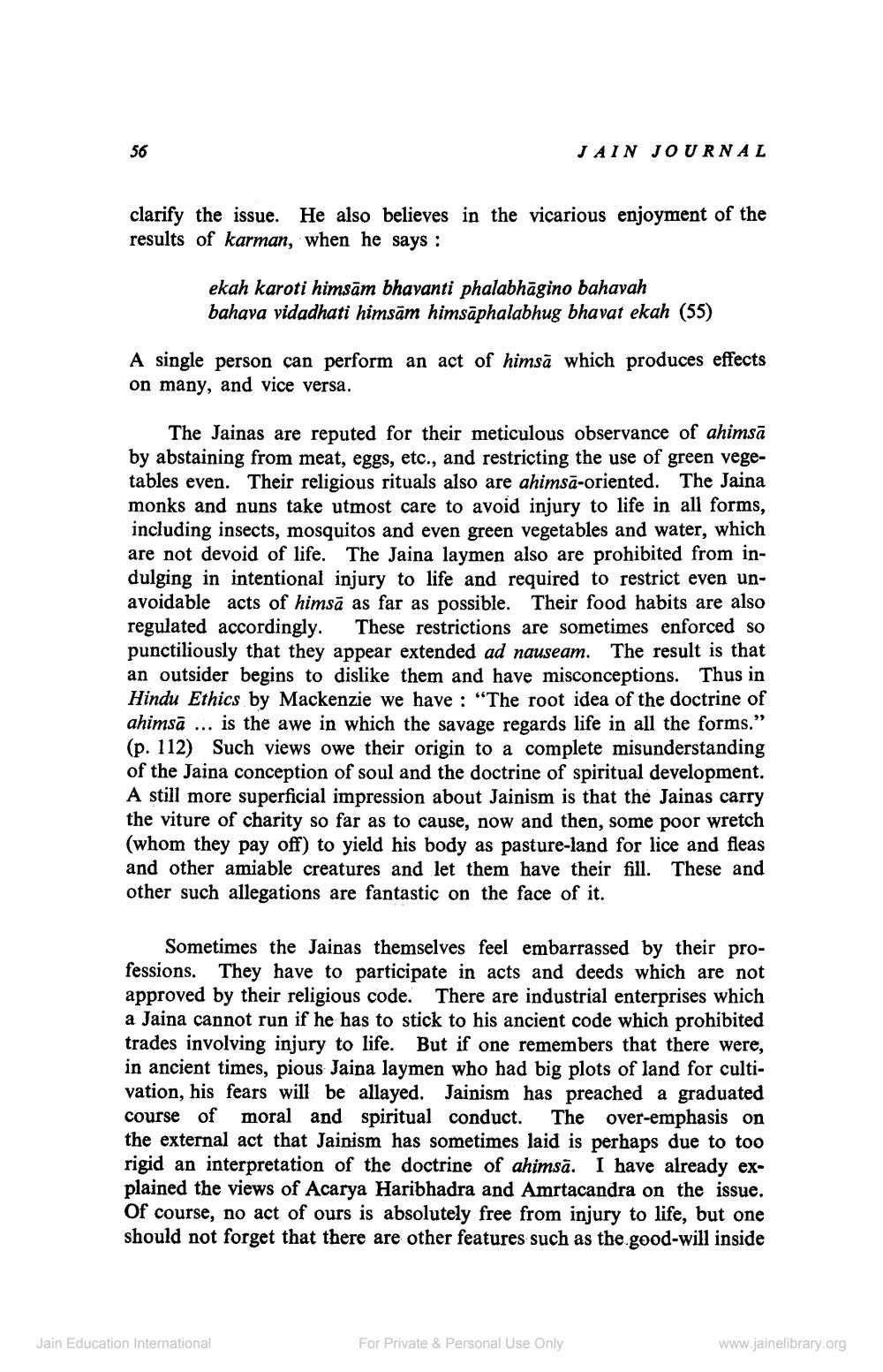________________
56
JAIN JOURNAL
clarify the issue. He also believes in the vicarious enjoyment of the results of karman, when he says:
ekah karoti himsām bhavanti phalabhāgino bahavah bahava vidadhati himsām himsāphalabhug bhavat ekah (55)
A single person can perform an act of himsā which produces effects on many, and vice versa.
The Jainas are reputed for their meticulous observance of ahimsā by abstaining from meat, eggs, etc., and restricting the use of green vegetables even. Their religious rituals also are ahimsa-oriented. The Jaina monks and nuns take utmost care to avoid injury to life in all forms,
including insects, mosquitos and even green vegetables and water, which are not devoid of life. The Jaina laymen also are prohibited from indulging in intentional injury to life and required to restrict even unavoidable acts of himsā as far as possible. Their food habits are also regulated accordingly. These restrictions are sometimes enforced so punctiliously that they appear extended ad nauseam. The result is that an outsider begins to dislike them and have misconceptions. Thus in Hindu Ethics by Mackenzie we have : "The root idea of the doctrine of ahimsā ... is the awe in which the savage regards life in all the forms." (p. 112) Such views owe their origin to a complete misunderstanding of the Jaina conception of soul and the doctrine of spiritual development. A still more superficial impression about Jainism is that the Jainas carry the viture of charity so far as to cause, now and then, some poor wretch (whom they pay off) to yield his body as pasture-land for lice and fleas and other amiable creatures and let them have their fill. These and other such allegations are fantastic on the face of it.
Sometimes the Jainas themselves feel embarrassed by their professions. They have to participate in acts and deeds which are not approved by their religious code. There are industrial enterprises which a Jaina cannot run if he has to stick to his ancient code which prohibited trades involving injury to life. But if one remembers that there were, in ancient times, pious Jaina laymen who had big plots of land for cultivation, his fears will be allayed. Jainism has preached a graduated course of moral and spiritual conduct. The over-emphasis on the external act that Jainism has sometimes laid is perhaps due to too rigid an interpretation of the doctrine of ahimsā. I have already explained the views of Acarya Haribhadra and Amrtacandra on the issue. Of course, no act of ours is absolutely free from injury to life, but one should not forget that there are other features such as the good-will inside
Jain Education International
For Private & Personal Use Only
www.jainelibrary.org




